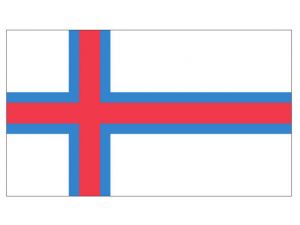Language/Faroese/Grammar/Questions
Hi Faroese learners! 😊
In this lesson, we'll be discussing Faroese Grammar - Questions. Being able to ask questions is essential if you want to communicate effectively in Faroese! We will go over different types of questions in Faroese, including basic yes/no questions, wh-questions, and indirect questions. We'll also cover some cultural information and interesting facts along the way! By the end of this lesson, you'll be able to ask questions with ease.
Consider exploring these related pages after completing this lesson: Adjectives, Pronouns, Future Tense & How to Use Be.
Asking Basic Yes/No Questions[edit | edit source]
In Faroese, basic yes/no questions are formed by adding a question particle to the end of a statement. The particle "ja" is added to the end of a statement to turn it into a question. Let's look at some examples:
| Faroese | Pronunciation | English |
|---|---|---|
| Tú ert íbúðini. Ja? | Too ERR-ty BU-dhin-i. yah? | You are in the apartment. Aren't you? |
| Hon er danska. Ja? | Hohn ERR DANS-kah. yah? | She is Danish. Isn't she? |
| Hann lesur bókina. Ja? | HAHN LEH-sur BOH-ki-nah. yah? | He is reading the book. Isn't he? |
As you can see, the question particle "ja" is added to the end of the statement to make it a question. The intonation of the speaker's voice will usually rise at the end of the question to indicate that it is a question.
Asking Wh-questions[edit | edit source]
Wh-questions are questions that begin with words like "what," "who," "where," etc. In Faroese, we use a different question word order than in English. In English, we usually invert the subject and the auxiliary verb to form a question. In Faroese, we keep the word order the same, but we add a question word at the beginning of the sentence. Let's look at some examples:
- "Hvílken dagur ert tú føddur?" (Which day were you born?)
- "Hvussu gamal ert tú?" (How old are you?)
- "Hvør er mamma tín?" (Who is your mother?)
- "Hvar býrt tú?" (Where do you live?)
Please note that the verb stays in the same order and tense as it would in a statement. In the example "Hvílken dagur ert tú føddur?", "ert" is the present tense of the verb "vera" (to be) in Faroese.
Asking Indirect Questions[edit | edit source]
Indirect questions are questions that are embedded within a statement. In Faroese, we often use the word "um" (if) to indicate that a question is being asked. Let's look at some examples:
- "Eg visti ikki, um tú ert íbúðini." (I didn't know if you were in the apartment.)
- "Eg spurdist um, hvussu gamal tú ert." (I asked how old you are.)
- "Eg undraðist, hvør móðir mín var." (I wondered who my mother was.)
In these examples, the question is embedded within the sentence using the word "um" (if). It's important to note that the verb stays in its original form, even though the sentence may be a question. "Visti" is the past tense of the verb "vita" (to know) in Faroese.
Culture and Interesting Facts[edit | edit source]
If you're interested in learning more about Faroese culture and history, a great place to start would be the Faroese language page on Wikipedia. This page provides links to many interesting articles and resources about the Faroe Islands and their language.
Additionally, to improve your Faroese grammar, you can also use the Polyglot Club website. Find native speakers and ask them any questions!
Dialogue[edit | edit source]
- Person 1: "Hvussu hevur tú dagin í dag?" (How is your day today?)
- Person 2: "Hann er góður! Hvussu er tín dagur?" (It's good! How is your day?)
- Person 1: "Hann er sera góður takk fyri at spyrja. Hvussu var títt ferðamál?" (It's very good, thank you for asking. How was your trip?)
- Person 2: "Tað var sera gott, og landslagið var ovurvyldandi. Og tín ferðamál?" (It was very good and the landscape was breathtaking. And your trip?)

